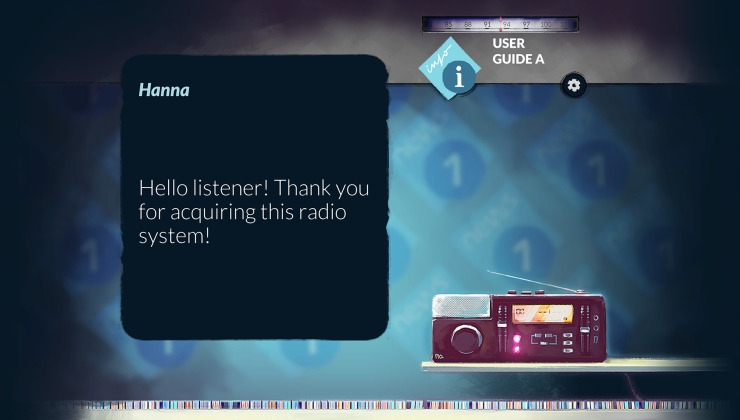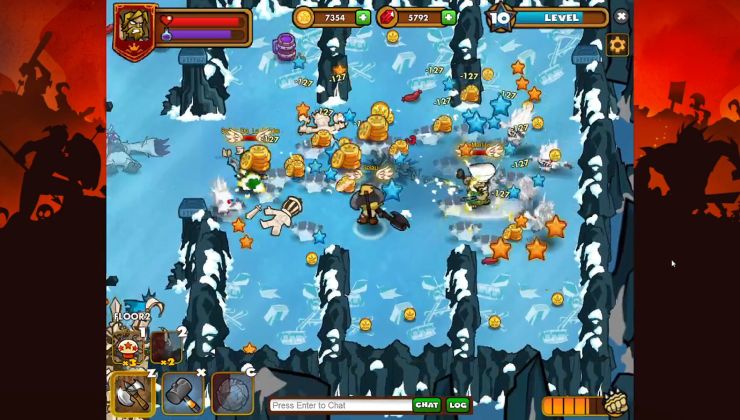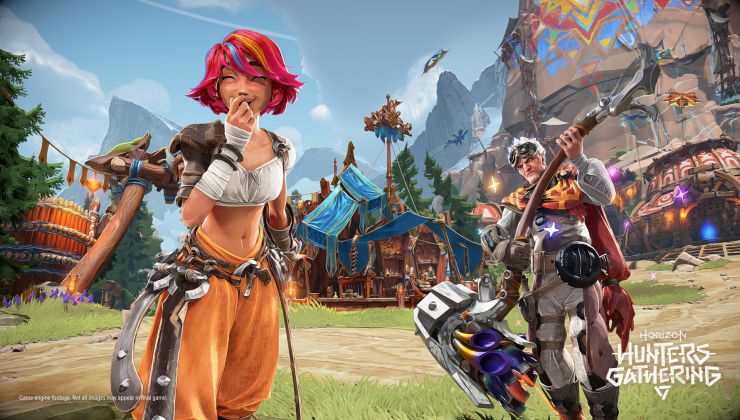Second Face Software have announced that their incredibly popular Portal: Revolution mod for Portal 2 has dropped the Native Linux build.
They've had a Native Linux build for a long time, but it became quite problematic and they weren't able to solve the issues players kept encountering. So instead, they're going to ensure it works with Proton where the issues didn't happen.
As they mentioned in their announcement on Steam:
Portal: Revolution, from the start, has included a native Linux build. As some players have recently reported, it was broken because of recent Steam updates. To fix this we have decided to remove the native Linux binaries in favour of Proton. Don't panic.
Our native Linux build sucked. You may have experienced frequent hangs and stutters related to gel rendering or other strange bugs. This stems from a bug in our multithreaded rendering code for gel blobs, and despite our best efforts we were not able to fix it. To make matters worse, it only happens on the native Linux build. Windows and Proton are not affected.
Because of these two reasons we'll ditch the native build and run the game through Proton. Performance should be comparable, if not even better at times and stability is definitely improved.
Valve rated it Steam Deck Verified with the Native Linux version, so this means it will need to be reviewed again with Proton by Valve, otherwise it will cause problems on Steam Deck. For now, you may need to manually opt into using Proton for it in the properties -> Compatibility menu for the game on Steam to run properly.

Direct Link
In related news, earlier this year they also announced Portal: Revolution 2 is in development, so there's more fun to come for Portal fans.
Quite true, but I suppose the difference is it puts some distance between them and "real" FLOSS Linux applications.
We get tens of thousands of games that run and run very well, and developers can spend more time actually building their games instead of focusing on fixing up issues for our (let's face it) tiny user share. Proton is a good great thing for gamers.Yes, YES!!! Keeping our (gaming) future tied so closely to Microsoft it's
So is that a statistic or an anecdote? Because my anecdote is, nearly all the games I play are native, and I never have any problems. When I have problems it's nearly always with a Proton game not working, even though I play far fewer Proton games. Although lately my main annoyance is for some reason my Dosbox Steam games are just not starting at all. I haven't played MOO2 in ages now because of that.You can go to any gaming-based forum with some Linux users and you will always see many people say that they've had issues with native games that were solved by switching to the Proton version.
So I'd be wary of this kind of generalization. We both have anecdotes pointing in different directions, but I doubt either of us have data.
Last Epoch, TW Warhammer (the Feral versions just performs straight up worse, is months behind thus destroying mod support, etc. ), tons of Adventure Maker games (or Adventure Studio? You know, the one everyone and their mum use to create point & click games) have severe issues on Linux especially with windowing and input, Ark, Rust; and the list goes on and on.
That's not anecdotal but confirmed by all the error reports you see for issues and the suggested solution 9/10 times being "switch to Proton".
It is also confirmed by devs shutting down their Linux version because they don't want to deal with the Linux-specific issues (meaning they did have enough of those to be bothersome).
"Works for me" is always anecdotal and no argument when obviously lots of people are having issues.
Funny enough, one thread I've seen throughout all of this is that often the issue isn't actually in the stuff related to graphics (which is arguably the main focus of the work being done on Proton, dxvk, etc), but in the native libraries used for windowing & window refreshing, input, etc.
Surprisingly often, it comes down to usage of ancient SDL1 (which, please devs, just don't. Ever.).
So switching to Proton will solve the issues not because of some graphical bug, but because the native libraries used for the native Linux version are, frankly, crap - or outdated.
There are undeniably lots of cases where it does not work well for people - and then Proton becomes an option.
The other way around just doesn't happen because if Proton is the default already, there IS no native version to switch to.
When you look at ProtonDB and the games that are reported to not work there, they are overwhelmingly of the multiplayer variant. That's probably 70-80% of the less than 10% of games that are reported as worse than Silver - and we all know the issues there are not Linux, but devs opting for the blunt hammer to their cheating issues.
In other words, the chance that your (non-MP) game will work fine on Proton is way over 90%.
The chance that the native version will work just fine? Hard to say without official data (which I doubt anyone has), but given the amount of reports and sentiments you generally see, I doubt it is better than the Proton stats.
Of course I wouldn't recommend going for Proton straight away if there is a native Linux version - because most likely that will work just fine and it will also perform better in that case.
But the approach to just switch to Proton always to get a higher chance at having no issues at all seems at least understandable to me.
Last edited by TheSHEEEP on 7 Aug 2025 at 7:57 am UTC
Yes, YES!!! Keeping our (gaming) future tied so closely to Microsoft it's good great!Just a reminder to people that this forum has an ignore feature, in case you want to get rid of sideline ragers who never contribute anything of value to discussions they inject themselves into, are really just annoying everyone and should probably go outside to take some deep, relaxing breaths.
Click on the profile -> block button.
The state of affairs in Linux community saddens me as of late. So much to say but I am clearly in the minority. Never mind...You're not alone.
We used to point out games not working well natively on Linux for what they are: bad ports.
We used to ask for ports for each and every game we wanted to buy.
Nowadays not only "I can run it." seems to be enough for most people.
They even started to actively ask developers to not port games.
They even started to attack fellow Linux games asking for ports.
Using Proton will always be being second class citizen.
Proton will always have to chase whatever Windows comes up with.
Proton can at most be on par, but never ahead.
If that's what floats your boat, ok.
But how about letting others have it their way?
This is why linux native gaming fucking sucks and has done for a long while. Who knows if glibc will break it. Who knows if the distro you run will change how things are compiled and break something obscure. Who knows if the compiler version change will do the same.
Linux on desktop/gaming needs a single source. Not the absurd amounts of random shitty distros and ways of building them with different compile flags, libc versions, kernel and driver versions held back or whatever.
Been on Linux for 25 years and I've grown to dislike it a lot :( Absolutely over the drama of packaging and no flatpak is not the answer, it's just a further abstraction of the same issues and brings *more* bloat.
Last edited by Luke_Nukem on 7 Aug 2025 at 9:52 pm UTC
I do think it might be worth having a project that basically reproduces some relevant old libraries and stuff so as to run old Linux games and other older, not-updated software. Presumably it could be as simple as a Flatpak with some old stuff in it. Maybe you'd also want some kind of layer for translating sound and things. You could call it LINE. :grin:
Last edited by Purple Library Guy on 7 Aug 2025 at 11:11 pm UTC
We used to point out games not working well natively on Linux for what they are: bad ports.We still do.
We used to ask for ports for each and every game we wanted to buy.... which basically never worked for obvious reasons.
Even now, with a share quadruple of what it was it still wouldn't.
Devs either do a native port for intrinsic reasons or they don't - outside pressure from an absolute minority is a complete futility.
Nowadays not only "I can run it." seems to be enough for most people.I am going to assume the first "not only" is too much, otherwise I don't get that sentence.
If you can run your game without issues, you can run your game without issues. If the performance is good, it is good.
Everything else is secondary at best.
They even started to actively ask developers to not port games.If a dev already shows clear signs of not being up to the task of doing and supporting a proper native port, that's an extremely good suggestion.
We've had plenty low effort, zero support ports.
And we had plenty good intentions of devs, who then realized there is actually some work to supporting an additional platforms, and as a consequence stopped. I'd argue it objectively would have been better if those never even tried, because their failure story is guaranteed to carry more weight than any success story (negativity bias & media echo).
Devs already comfortable with Linux are very welcome to do a native port.
But those who never even touched Linux, have no real intention to, and only push the "export to Linux" button? That's a huge risk likely to come back to haunt Linux gaming as soon as a platform-specific bug arises.
They even started to attack fellow Linux games asking for ports.Yeah, I doubt that - at least no more attacks than anywhere else on social media for any given topic or opinion.
People are people, the social climate is what we live in, it is what it is.
Using Proton will always be being second class citizen.A clear improvement over what Linux used to be: no citizen at all, and third class or worse often enough even if there was a port.
Proton will always have to chase whatever Windows comes up with.Nice platitudes. But:
Proton can at most be on par, but never ahead.
What more than "on par" do you need when it comes to video games?
What do you actually want to be ahead of?
Run them faster? Video games are mostly platform agnostic code, any kind of serious performance bottleneck will be cross-platform. At the bottom of it all is usually a C/C++ (or other low-level language) core that is standardized and will thus also behave the same no matter where. MSVC, gcc, Clang, etc all perform within 5-10% of each other, with differences only showing up in (surprise!) platform-specific code.
Features, like eg certain GPU techniques? May be thinkable, but that, too, is mostly hardware-bound.
But nobody would develop such a thing Linux-first, with a 2-3% share.
The gist of everything is that for anything serious to happen, the share has to rise.
That "No Linux support, no buy" crap didn't lead anywhere. Neither did the friendlier variant, the "Linux port pls" begging.
As Valve and years of dedicated work on compatibility layers has shown, you rise the share not by pestering devs with minority demands, but by ease of adaptation and support. And good hardware ideas.
But how about letting others have it their way?Nobody is stopping you.
You'll just have to live with most people in the Linux community having realized by now that blind idealism leads nowhere and consequently calling others out when they show just that.
Somebody telling you to "just use Proton" is not an attack.
Last edited by TheSHEEEP on 8 Aug 2025 at 5:56 am UTC
Nobody reports it to the devs when they try a Windows game in Proton and it doesn't work; they know it's not supported. And nobody is going to buy a game with a native version, start with Proton instead, find it doesn't work, and then complain on a forum that Proton didn't work, only to have the native version recommended. It's not a symmetrical thing when it comes to how and whether people complain, so I think it's plausible you could see more complaints about native even if Proton doesn't on average work as well.
On the question of how well Proton works vs. native, the thing about some of your points is that people expect Proton not to work. I mean, yeah, they figure it will work most of the time, but failure is part of the normal parameters of using a thing like Proton;Maybe initially, when it all started out?
But I cannot even remember the last time Proton was not able to run a game. It must've been years ago.
For a while I checked ProtonDB before buying a game - I don't even do that anymore.
Besides, plenty devs officially support Proton at this point - of course people then expect it to work, just like they would with a native port.
At this point in time (with the exception of MP and VR games), Proton is very much a "it just works" thing. And widely perceived as that as well. You are honestly the first person I see viewing it so negatively.
And I talk to lots of Linux folk, and even more to gamers outside the Linux sphere (usually talking about the OS itself), all of which very much seem to think they could run their games very well on Linux (and they expect occasional fiddling), but they are intimidated by the OS itself.
You are really allowing your own exceptional experience to cloud your judgement of what most people see - for that, a look at ProtonDB reports is more than enough. Way over 90% silver+ for reported games puts failure outside of a "normal parameter" with Proton at this point.
Nobody reports it to the devs when they try a Windows game in Proton and it doesn't work; they know it's not supported.That depends a bit on what your definition of "reporting to devs" is.
You can find plenty of bug reports of people running a game through Proton on Steam forums. Most of which of course not related to Proton.
But in the past, for example at least until Proton got its video support fixed, you could see a lot of issues raised ala "game works fine through Proton, but videos don't play" (remember that "TV test screen" thing?). Usually devs reacted to it, pretty much always others, with a variety of end results.
But it did get reported - official support or not.
If you are specifically talking about some dev-specific bug report channel, then yeah, you are probably right - but it's not like those are ever used by most people to begin with.
The vast majority of users, as in 90+%, do not ever use bug reporting features or "proper" channels (and I can tell you that from decades developing user-facing software) - and I'd wager gamers do it even less.
And again, lots of official Proton (often in the form of Steam Deck) support by now.
Then, it also depends on which dev you are talking about.
There is the Proton bug tracker, the Github one - obviously most people will never have a Github account, but considering that (and likely due to the higher amount of techies among Linux users) the amount of reports there are surprisingly high.
So, one could argue those very much report to the devs - the devs of Proton.
If some Proton-related bug is more likely to be fixed by the game dev or the Proton dev depends on the case.
It's not a symmetrical thing when it comes to how and whether people complain,Oh, man, people complain. :grin::grin::grin::grin::grin:
Doesn't matter if anyone thinks it is "reasonable" or "plausible" - we are long past the times where one could expect people to behave in those categories, especially online.
If you think people wouldn't complain to a developer because something is not officially supported, then you live in extreme contrast to reality.
Last edited by TheSHEEEP on 9 Aug 2025 at 5:44 am UTC
Obvious side-track:
It's supposed to bind the sentence to the next one. I'm no native speaker, but I think it should work out in context:Nowadays not only "I can run it." seems to be enough for most people.I am going to assume the first "not only" is too much, otherwise I don't get that sentence.
Nowadays not only "I can run it." seems to be enough for most people. They even started to actively ask developers to not port games.(emphasis added)
The gist of everything is that for anything serious to happen, the share has to rise.I agree with that.
But.
If we're now shouting
"Just use Proton! Don't do ports! Ports are bad!"
... I fear, developers might later, when the share has risen, just say:
"Just use Proton! We don't do ports! Ports are bad!"
It's what Linux gamers said! For years! Right?!?
People used to try to push the doors open for Linux being a first class gaming system.
I agree with you that it might have been mostly futile. I know for sure that it wasn't 100%. (I am at least responsible for one port, just by friendly nudging.) But yes, I don't think it accomplished much.
But what people are doing now, they're Linux gamers mind you, is pushing the doors in the other direction.
If you're fine running your games with Proton, alright. No problem with that.
But would you then just leave the doors to first class Linux gaming as they are?
Last edited by Eike on 9 Aug 2025 at 2:12 pm UTC
But I cannot even remember the last time Proton was not able to run a game. It must've been years ago.https://www.gamingonlinux.com/2025/08/farlight-84-is-now-broken-on-linux-steamos-steam-deck/
For a while I checked ProtonDB before buying a game - I don't even do that anymore.
(You even commented on the game not running before writing above comment...)
Last edited by Eike on 9 Aug 2025 at 11:48 am UTC
https://www.gamingonlinux.com/2025/08/farlight-84-is-now-broken-on-linux-steamos-steam-deck/That's a multiplayer game.
(You even commented on the game not running before writing above comment...)
For obvious reasons (and as I'm pretty sure I wrote above), MP games are exempt from this - they would run just fine, if the player wasn't flagged as cheater.
I did comment under the full assumption that that is the case - because, well, that's what it almost always is.
Oh! I do remember a crash now that I had under Proton when changing certain graphical settings in a game, maybe a year or two ago, which didn't happen under Windows.
However - that crash was unrelated to Proton, it was (IIRC) some sequence of AMD GPU calls (on Linux only) that would cause a crash no matter what tried to execute them. It was just through Proton and that game that I noticed - others had the same issue coming from other sources.
Nothing the dev could've done about it, either.
So yes, there was such a bug that did not happen under Windows. But it didn't affect my ability to play so I quickly forgot about it and don't really consider it important.
Last edited by TheSHEEEP on 9 Aug 2025 at 2:06 pm UTC








 How to setup OpenMW for modern Morrowind on Linux / SteamOS and Steam Deck
How to setup OpenMW for modern Morrowind on Linux / SteamOS and Steam Deck How to install Hollow Knight: Silksong mods on Linux, SteamOS and Steam Deck
How to install Hollow Knight: Silksong mods on Linux, SteamOS and Steam Deck